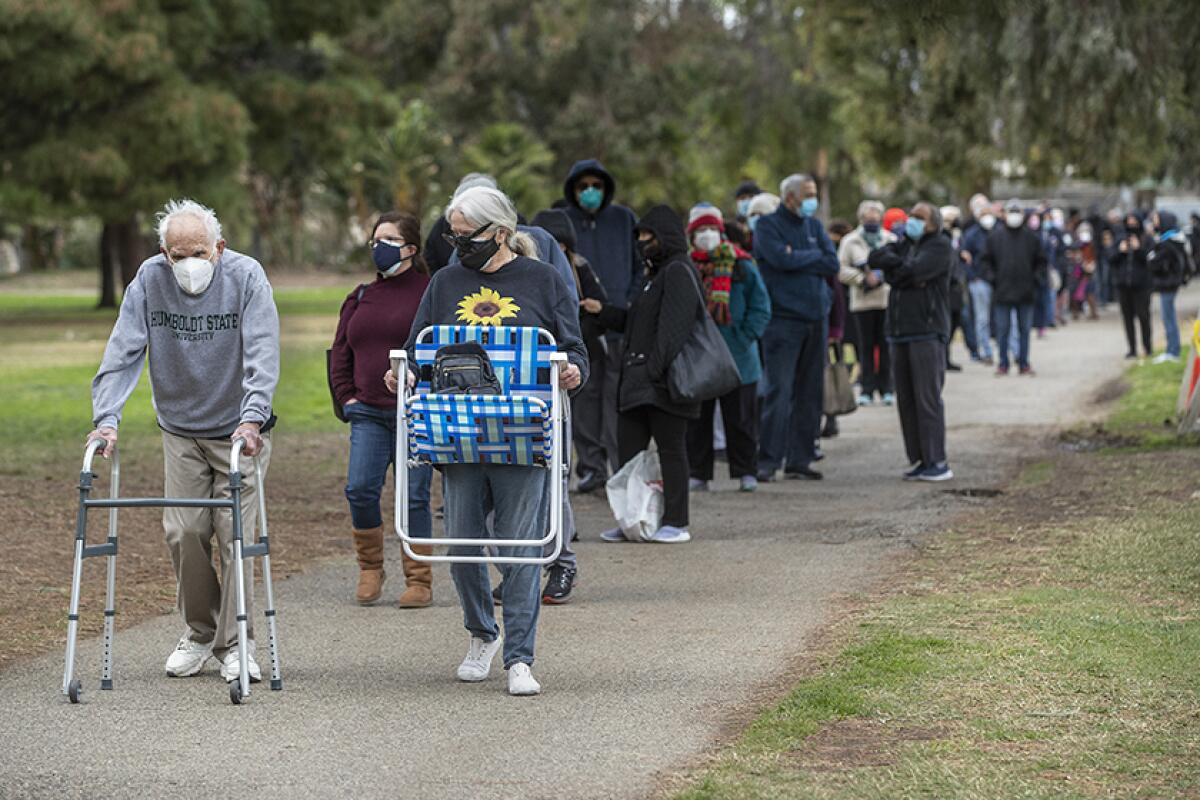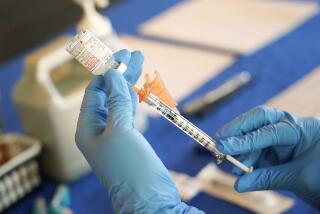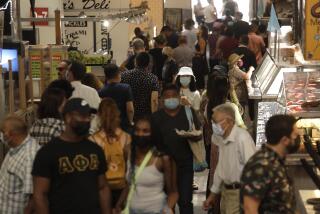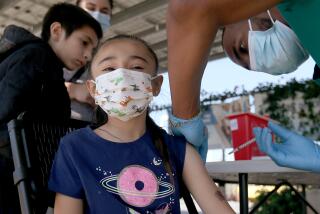Op-Ed: My parents are almost 80 and getting chemo. Why is it so hard for them to get the vaccine?

When my parents finally received their first dose of the Pfizer COVID-19 vaccine, I was not ecstatic. Far from it. The overarching feeling was rage. The long road to getting those precious jabs in their arms brought into sharp focus how truly broken our healthcare system can be. And I’m speaking as a daughter and a doctor whose experience in the medical field conferred no advantage.
My parents, both pushing 80 and living in the Bay Area, are cancer patients actively undergoing chemotherapy. When California opened up vaccines in mid-January to residents besides healthcare workers and residents of long-term care facilities, we naively waited a day thinking that our HMO — the one with the clever marketing slogan that exhorts its members to prosper — would be contacting high-risk patients over 65.
Surely patients with blood cancers, whose risks of death by COVID-19 are nearly three times that of the general public, would be protected first. Even though my parents fell into that category, it didn’t mean a thing.
My father happened to have a telemedicine appointment with his doctor the day after the state announced widened vaccine eligibility. When he asked about the vaccine, he was immediately told, “Yeah, you guys should call the vaccine hotline — they opened up the phone lines this morning and I hear it has been crazy all day.”
The hotline? That was the moment we knew we were completely on our own, age and risk factors, blood cancers and chemotherapy be damned.
We were immediately immersed in two days of calls on our various cellphones, reeling from the shock of four-to-six-hour estimated wait times. The first evening, Mom’s phone battery died while she was on hold, and Dad later accidentally hung up around hour three while trying to negotiate call waiting.
The next day, after 3½ hours on hold, my parents were given a date weeks out and were informed that every single slot in all neighboring counties had been snatched up. Their only option was in another county, at an outpatient facility 50 miles away. They took what was doled out.
Letters to the Editor: Making seniors shiver in the cold for a vaccine is a really bad look for L.A.
Forcing seniors to navigate a byzantine online registration system that doesn’t guarantee them an appointment is an outrage.
I managed to take the day off work, and we embarked on the journey together. It was a stressful and taxing 100-mile round trip in sheets of rain on a slick freeway dominated by shipping trucks. We were sandwiched between stop-and-go brake lights shimmering like a disco ball through the spray. And on the ride back, we saw a freshly flipped, still-smoking vehicle on the shoulder, one of three mangled in a multi-vehicle crash.
My parents have advanced degrees and resources, so they don’t have to fret about the cost of the gas needed to travel to their faraway appointments. They also have a daughter who could drive their car on the inconvenient but oh-so-necessary trip, one they would repeat three weeks later to complete the vaccine course.
Yet they are lucky.
They were not camping out in lines overnight in lawn chairs in Florida for a chance at winning the golden ticket that is the COVID-19 vaccine. They did not have to wait endlessly outside Dodger Stadium, cooped up in their car with no bathrooms in sight.
I would like to feel something other than rage as I prepare to drive my parents to what feels like a distant land for their second COVID-19 shot. Perhaps an undercurrent of release, a rivulet of relief.
But I am fearful for the 90-year-old who goes to church with my friend. She lives alone and only has a landline. While trying to make a vaccine appointment, she got so tired of waiting on hold she gave up. She won’t accept help because she doesn’t want anyone else to waste their time — and insists she’ll make the appointment once there is no rush. But there is a rush. She’s 90.
And I am anxious for loved ones in southern Oregon who are in their 70s with high blood pressure and diabetes, and who are still wondering when their turn will come. And reports continue to come out about vaccine distribution in Black and brown neighborhoods, where many of those who line up to get the shot are interlopers instead of community members.
Even though my parents will soon receive their second dose of the Pfizer vaccine, rage seems like the only rational response. I thought I would be inured to the dysfunction of our COVID response by now, after a year of leadership at every level failing to properly fight the devastating disease — and after a mind-numbing number of Americans have died from it. But I’m not.
Dipti S. Barot is a primary care doctor in the San Francisco Bay Area.@diptisbarot
More to Read
A cure for the common opinion
Get thought-provoking perspectives with our weekly newsletter.
You may occasionally receive promotional content from the Los Angeles Times.











